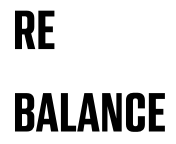BLOG: I Have A Right To A Voice - There Are More Options Open To Me Than Reductive Stereotypes.
I enjoy being kissed. I like being called 'lovely'. But not when I'm at work, and not by a man I've never met before during a business meeting. A man that has just shaken the hands of my male colleagues before holding me by the shoulder and kissing me.
The kissy-man was a sales manager at a Print Factory I visited in 2019. The purpose of the visit was to assess the working practices and capacity of the site before awarding a tender. I was the decision-maker for this, and the men I was with were junior to me. It seems strange that 427 years after Shakespeare wrote that line that there are still men who think women’s’ lips are primarily for kissing - rather than, say, negotiating multi-million-pound contracts.
I was raised in a working-class household by a Dad that repaired cars and a Mum that was a Personal Assistant in the NHS; and my brother and I were not brought up to believe that certain careers were off-limits to either of us. I was always interested in building and fixing things, I remember making a go-cart with my Dad that I was very proud of. I always thought I’d go into a job that involved practical problem solving skills and allowed me to lead a team. Call me naive, but I never thought I would have to justify my career choices.
I have worked in logistics for 25 years. I began my career as a Stock Room Manager for a furniture and homewares company with 71 stores. The first time I realised there was such a thing as ‘a man’s job’ was when I found out that 65 of those stores had a male Stock Room Manager. I recall being approached by a male colleague and asked:
‘Are you a dyke?’
‘No. Why do you ask?’
‘Because you have short hair, tattoos and do a man’s job.’
I didn’t entertain this conversation long enough to find out what job I should have been doing instead, but I presumed that looking heterosexual (whatever that means) and having long, glorious hair were the key skills I needed to get ahead.
Throughout my working life I’ve run up against some old-fashioned attitudes. I’ve been asked to make tea and directed to take minutes at client meetings - ‘as women are good at that’. I recall interviewing a candidate alongside a male colleague and each time I asked a question, the candidate addressed their reply to my colleague. I once attended a job interview where the Warehouse Manager observed; ‘a pretty girl like you should be married.’ And on another occasion I was asked: ‘when do you plan on having children?’ I guess these two recruiters hadn’t read much about women's value to the logistics sector.
This year, the theme of International Women’s Day is ‘Choose to Challenge.’ I’ve worked with many inspiring and innovative people in my career but I’ve also witnessed homophobia, transphobia, racism and sexism, usually dismissed as ‘banter’. Only 13% of Logistics roles in the UK are filled by women, and this number falls even lower if we account for other intersectionalities. All employees, and especially those who identify as women, are entitled to work in an environment where they are not threatened by their colleagues. Choosing to Challenge can feel frightening or overwhelming but allies are vital in confronting prejudice and creating a safe and empowering culture in the workplace. If those allies are in senior roles the result is even more effective.
One facility I have found useful is the Women In Logistics Forum of CILT.org.uk; a Professional Association for career and networking opportunities. It is invigorating to see women succeeding and supporting each other. The Forum reminds me that I have a right to a voice and there are more options open to me than the reductive stereotypes of ‘compliant lady’ or ‘feminist bitch’.
If you work in the Logistics industry and want to be a great ally there are things you can do to push things forward. Volunteer as a mentor to a woman who is setting out in the industry. If your organisation doesn’t have a mentoring programme, agitate to start one. If you work for a corporate, learn how they ensure diversity in their recruitment practices, particularly in among graduate employees. Seek to understand how womens’ careers are affected by raising children and managing a work/life balance in the face of a lean 24/7 operation. Educate yourself about the challenges faced by ethnic minority groups when they are seeking pay equity and opportunities for promotion. Ensure your company publishes Gender Pay Gap statistics and scrutinise them. Those things will be worth a thousand kisses.
